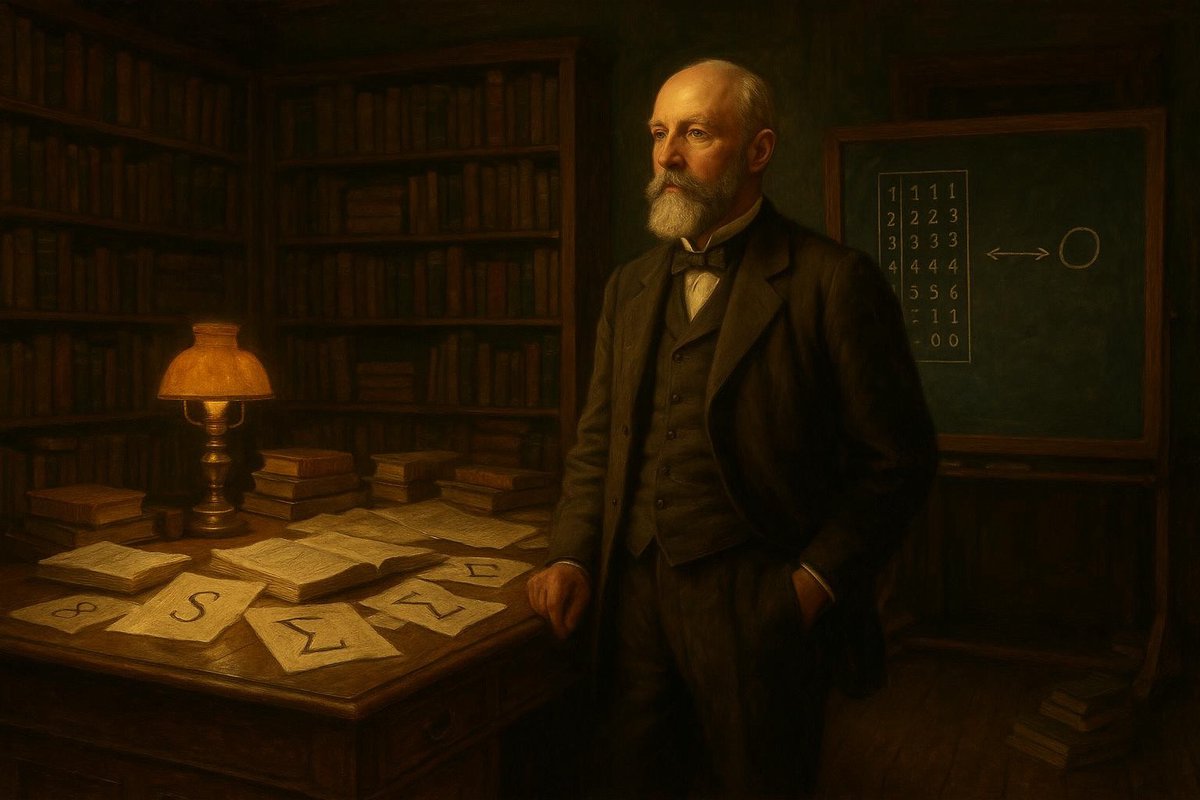
What does infinity really mean? To most of us, infinity might seem like a simple concept — a never-ending stretch of numbers. But the pioneering German mathematician Georg Cantor dared to ask: Is infinity more peculiar than it first appears? His answer was a resounding ‘Yes,’ fundamentally altering our understanding of the infinite and sparking a mathematical revolution.
Unpacking the Infinite Question
In the 19th century, mathematics was buzzing with discoveries. Yet, infinity remained a puzzling enigma, often viewed as a single, monolithic concept. Cantor’s bold proposition? There are different sizes of infinity. Imagine an eternal library where each book represents a number. Countable infinities, like whole numbers, are akin to books lined neatly on a shelf. But Cantor felt there were more books — representing real numbers, scattered across endless floors, uncountable and infinite.
- Whole numbers can be counted like books on a shelf.
- Real numbers are like books spread across infinite floors.
- Cantor’s diagonal argument proved there are more real numbers than whole numbers.
His diagonal argument, showing that real numbers exceed whole numbers, was a stroke of genius. This idea launched debates and opened mathematical vistas no one had explored before.
Surprising Facts Behind Cantor’s Discoveries
Interestingly, Cantor’s ideas were initially met with skepticism and resistance. Many of his contemporaries rejected the notion of multiple infinities. A well-known critic, Henri Poincaré, called Cantor’s work a “disease,” reflecting the era’s staunch adherence to traditional views. Yet, Cantor persevered, and his ideas ultimately gained acceptance, revealing new realms within mathematics.
- Henri Poincaré criticized Cantor’s work, calling it a “disease.”
- Cantor’s perseverance eventually led to widespread acceptance of his theories.
- Cantor’s work laid the foundations for modern set theory.
His discoveries paved the way for modern set theory, transforming how mathematicians approached the infinite. By expanding the boundaries of mathematical thought, Cantor’s work created opportunities for future exploration and understanding, forever altering the mathematical landscape.
What Science Says About Infinity and Beyond
Science often builds on the past, and Cantor’s work is no exception. His theories provided the groundwork for advancements in various fields, from computer science to cosmology. The notion of infinite sets even plays a role in quantum mechanics, where particles behave in ways that defy traditional logic.
- Infinite sets are pivotal in computer science algorithms.
- Cantor’s ideas influence cosmological models of the universe.
- Quantum mechanics often employs concepts tied to infinite sets.
By understanding different infinities, scientists can better model complex systems, allowing for breakthroughs in technology and physics. Cantor’s vision extended beyond mathematics, influencing how we comprehend the universe’s vast expanse.
What It Means for Us and the Future
For us, Cantor’s legacy is a testament to the power of questioning established norms. It encourages us to embrace curiosity and explore even the wildest ideas. The concept of multiple infinities invites us to ponder our place within the universe, challenging us to look beyond the tangible.
- Cantor’s work inspires curiosity and innovation.
- Exploring infinity can lead to new philosophical insights.
- His legacy encourages questioning and exploring beyond surface-level understandings.
As we continue to explore and question the infinite, Cantor’s legacy reminds us that the pursuit of knowledge often requires breaking free from conventional thought. In the words of Cantor himself, “The essence of mathematics is its freedom,” a sentiment that continues to inspire mathematicians and thinkers around the world.
In conclusion, Cantor’s exploration of infinity reshaped mathematics, providing a new lens through which to view the endless possibilities of numbers. His work invites us to challenge our perceptions and embrace the vastness of mathematical thought.
Fuel Someone Else’s Curiosity
Inspired by Cantor’s journey? Share this article and spark a conversation about the boundless nature of infinity. Encourage friends and family to delve into the wonders of mathematics and discover the remarkable impact of Georg Cantor’s theories. Let’s spread the enthusiasm for exploration and learning!

Leave a Reply